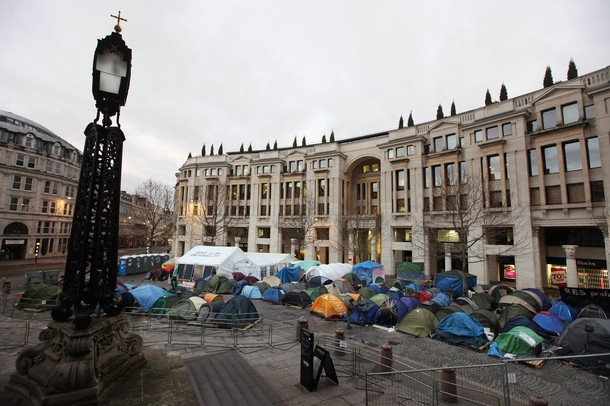“Capitalism in Crisis,” the front-page banner headline shouted.
“The code that forms a bar to harmony” was the inside-page headline, suggesting a secret code that concealed a sinister plot to keep the rich richer and the poor poorer.
“The enrichment of bankers, corporate chiefs, flash traders and their cronies is testing tolerance of inequality,” said the sub-head.
This wasn’t the old Soviet Pravda but the opening salvo in a Financial Times series that regrouped recent articles designed to dramatize that democratic capitalism is on the path to self-destruction and what can be done to save it.
Some of the broadsides in the FT’s two-week series of articles:
— If capitalism allows bankers to take all the profits while society underwrites the risks, what can be done to change that?
— We Need Smart Reinvention, not Destruction. “I suspect”, writes Lawrence Summers, “that if and when macro-economic policies are appropriately adjusted, much of the contemporary concern will fade away.”
— Undermining the Case for Capitalism. Public confidence in shareholder capitalism can only be restored if owners recognize their responsibility.
— “Financial Amnesia” — a factor behind the crisis. Chartered Financial Analyst Society of the United Kingdom says investment professionals should study financial history to reduce the likelihood of future crashes.
— The 2012 Recovery: Handle with Care. Looking at the battered high-income countries, is there a good reason to expect healthy outcomes? Not really, says Martin Wolf.
— Capitalism is dead: long live capitalism. Institutional settings and relationships with political institutions have always been open to change.
— The myths of Russia old and new. Much of what goes on today is deeply unattractive. But contrary to what you might gather from the Western press, Russia isn’t the Soviet Union. It is comparatively open and prosperous, writes Rodric Braithwaite.
On Monday, John Plender, in his warning salvo, wrote, “Greedy bankers, overpaid executives , anemic growth, stubbornly high unemployment — these are just a few of the things that have lately driven protesters on to the streets and caused the wider public in the developed world to become disgruntled about capitalism …
“Fewer than half of the American and British people sampled in the 2011 Edelman Trust Barometer have faith in business to do what is right,” Plender added. “The survey rates the U.S. and the U.K. only marginally ahead of Russia on this score. So there is talk of a crisis of legitimacy and an erosion of business’s ‘license to operate’.”
At the heart of the crisis, the Financial Times’ warnings made clear, “is widening inequality.” In a recent study, the Organization for Economic Cooperation and Development, the club of developed nations, declared that the wealthiest Americans “have collected the bulk of the past three decades’ income gains.”
As Stewart Lansley, author of a recent book on inequality — “The Cost of Inequality” — puts it the modern economy appears to consist of two tracks: a fast one for the super rich and a stalled one for everyone else. “Those in the slow lane enjoyed rising living standards before 2007, despite stagnant real incomes, thanks to increased borrowing on the security of their homes,” Plender reports.
The crisis that engulfed the whole world with the subprime mortgage scandal — worthless real estate securities peddled around the globe as better than gold — drove “millions to poverty while at the same time, finance came to play a new role as a cash cow for the global super-rich elite,” writes Lansley.
Winston Churchill once famously said that the inherent vice of capitalism is the unequal sharing of blessings whereas the inherent virtue of socialism is the equal sharing of miseries. Communism imploded in 1989 and democratic capitalism emerged triumphant.
Capitalism — without any real opposition — quickly moved from crony capitalism to casino capitalism to what Karl Marx predicted 150 years ago: capitalism would eventually sow the seeds of its own destruction.
Pete Peterson who made his fortune at Blackstone turned more than $1 billion to his charitable foundation when he retired in 2007. More recently, he described what’s happening on Wall Street as “animalistic and carnivorous.”
The Financial Times’ series suggests we have indeed been sowing the seeds of our own destruction — and that a change of course is long overdue.
Arnaud de Borchgrave, a member of the Atlantic Council, is editor-at-large at UPI and the Washington Times. This column was syndicated by UPI.
Image: occupy%20london%20stock%20exchange.jpg
